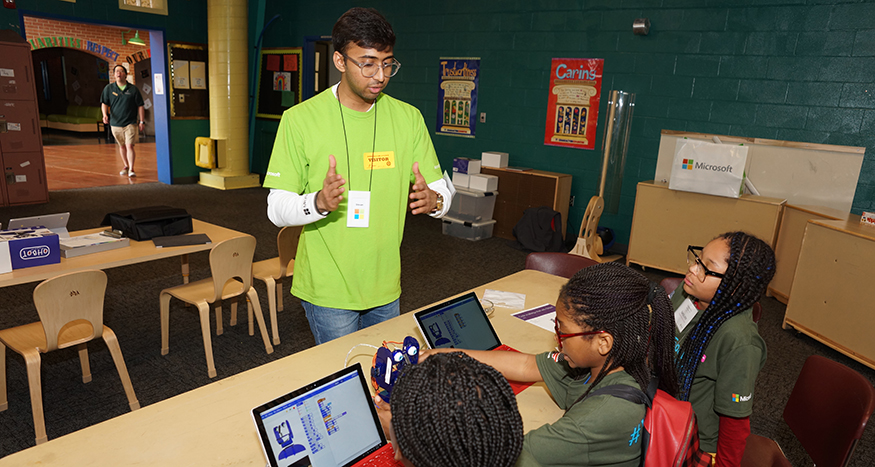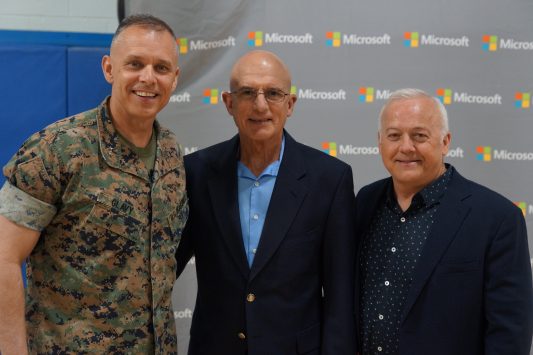On-base YouthSpark event series continues during Month of the Military Child
Every child has the potential to become an innovator of the future.
But for children of military families—who often change schools six to nine times during their educational career, according to the Military Child Education Coalition—access to programs and learning opportunities can be a struggle. It’s a unique challenge that can disrupt social and educational development during a critical time of growth.

This April, as we recognize the Month of the Military Child, Microsoft is also celebrating one year of offering our YouthSpark4MilKids events on U.S. military bases. Since March 2018, more than a thousand students have participated in more than a dozen YouthSpark events at military installations nationwide, from Schofield Barracks in Hawaii to Marine Corps Base Quantico in Virginia and many locations in between.
The free, day-long experiences give kids the chance to test out cutting-edge technology, including virtual and augmented reality, robotics, and 3D mapping. For some children, YouthSpark also provides a first glimpse into STEM-related professions like computing and IT.
“In a military family, everyone makes a sacrifice, including the children,” said U.S. Marine Corps Major General (Ret.) Chris Cortez, vice president of Microsoft Military Affairs. “Over the past year, our YouthSpark4MilKids events have become an inspiring way for us to give back to this community—we’re proud to provide a meaningful technology experience for our military children.”

The on-base YouthSpark events are just one component of Microsoft’s commitment to military families in action. By inspiring military children to pursue meaningful careers in STEM, especially in technology, we aim to help prepare them for the digital economy of the future.
In addition to the youth-centered events, the Microsoft Software & Systems Academy (MSSA) and the Military Spouse Technology Academy (MSTA) were designed to teach specialized skills to service members, veterans, and their spouses, to help them transition to rewarding careers in technology. Thanks to our hiring partner network of more than 400 industry-leading organizations nationwide, MSSA grads are guaranteed interviews for the chance to kickstart their new careers as soon as they graduate—ultimately helping to drive innovation across industries on a daily basis.
This month, YouthSpark took place April 9 at Fort Meade, Maryland, for children in grades four to nine. As part of the day’s curriculum, students had the opportunity to express their creativity in mixed reality through Paint 3D artwork and to learn to bring Ohbot to life by applying computational thinking to coding its movements and speech.
“Since we are located between Washington and Baltimore, we live in an area that has multiple technology employment opportunities for our youth,” said Francisco Jamison, Fort Meade Child and Youth Services division chief. “Fort Meade has extensive employment opportunities in computer networking and cybersecurity, and it’s our goal to help our young people to enter the future workforce very prepared.”
The next YouthSpark4MilKids event will take place on April 25 at Fort Bliss in Texas. Visit Microsoft Digital Skills to learn about other opportunities for students to get immersed in tech.
“Microsoft is committed to empowering children living on military bases by introducing them to new ways to interact with technology,” said Cortez. “They’re learning computing and critical-thinking skills and exploring their own potential for a future in a digital world.”
